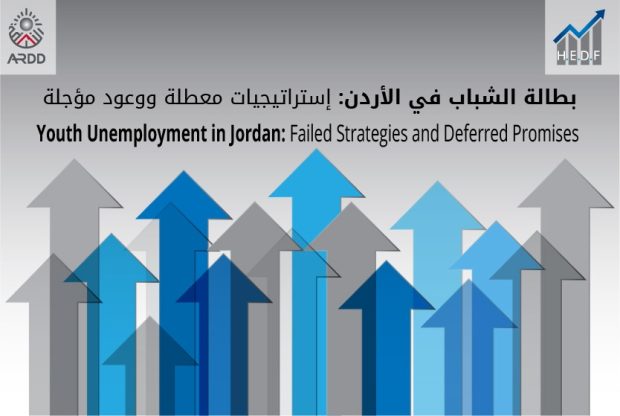Dr. Raad Al Tal and Dr. Jalal Husseini
Unemployment in Jordan has been expanding over the past 10 years, and its rate continued to grow in an unprecedented manner during the past two years.
External factors, including the repercussions of COVID-19, have played a role in exacerbating the unemployment problem in Jordan, but internal policies, structural imbalances in the labor market and vocational preparation, and partnerships between the public and private sectors have played the greatest role in the exacerbation of the problem, and the stalling of solutions and lack of real progress in solving it.
The Jordanian constitution, since 1952, enshrines the right to work, yet despite this and the existence of more than 17 strategies related to employment and combating unemployment, no positive results have been registered, rather, bureaucratic challenges have increased.
The unemployment rate in Jordan today is about 25% and reaches more than 33% among women. Official statistics show that 59.3% of the unemployed are holders of a high school diploma or higher degree. The unemployment rate among men with a bachelor’s degree or higher reaches 29.5%, while it jumps among women to 81.8%. The unemployment rate in the last quarter of 2022 among young people in the 15-24 age group reached about 46.9%: 42.1% among men and 67.5% among women.
The “Youth Unemployment in Jordan: Failed Strategies and Deferred Promises” study, conducted by the Arab Renaissance for Democracy and Development (ARDD) as part of the efforts of the Human and Economic Development Forum (HEDF) tries to address the issue as it seeks to analyze the trends, characteristics, and causes of unemployment among Jordanian youths, as well as the reasons for the inadequacy of the various employment measures and legislative strategies adopted by successive Jordanian governments to address this serious issue. It suggests recommendations aimed at facilitating the access of youths in Jordan to decent work to contribute to the Jordanian economy.


